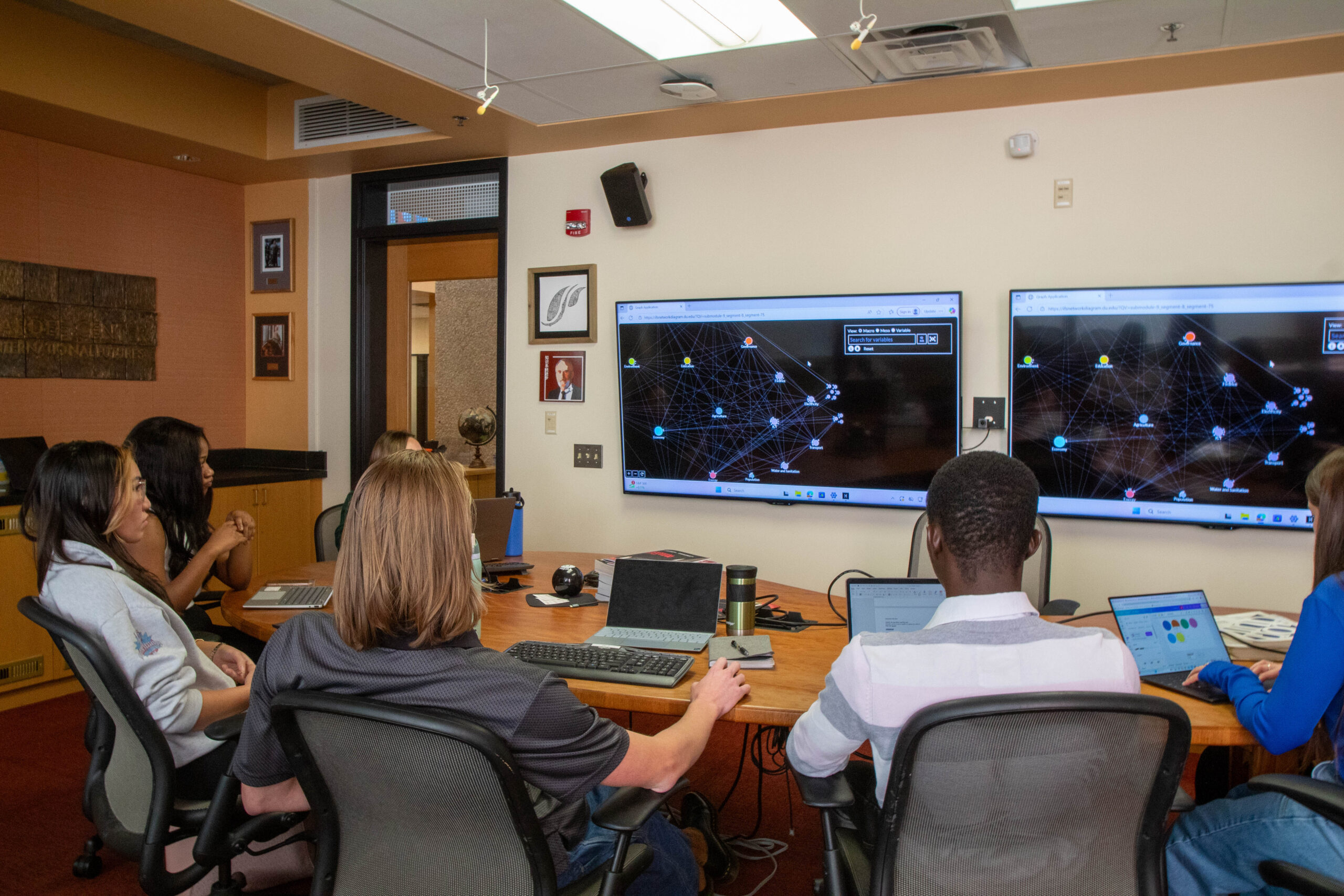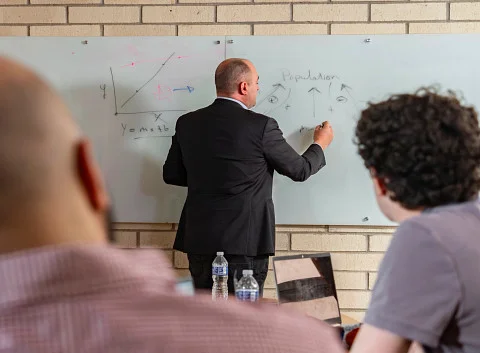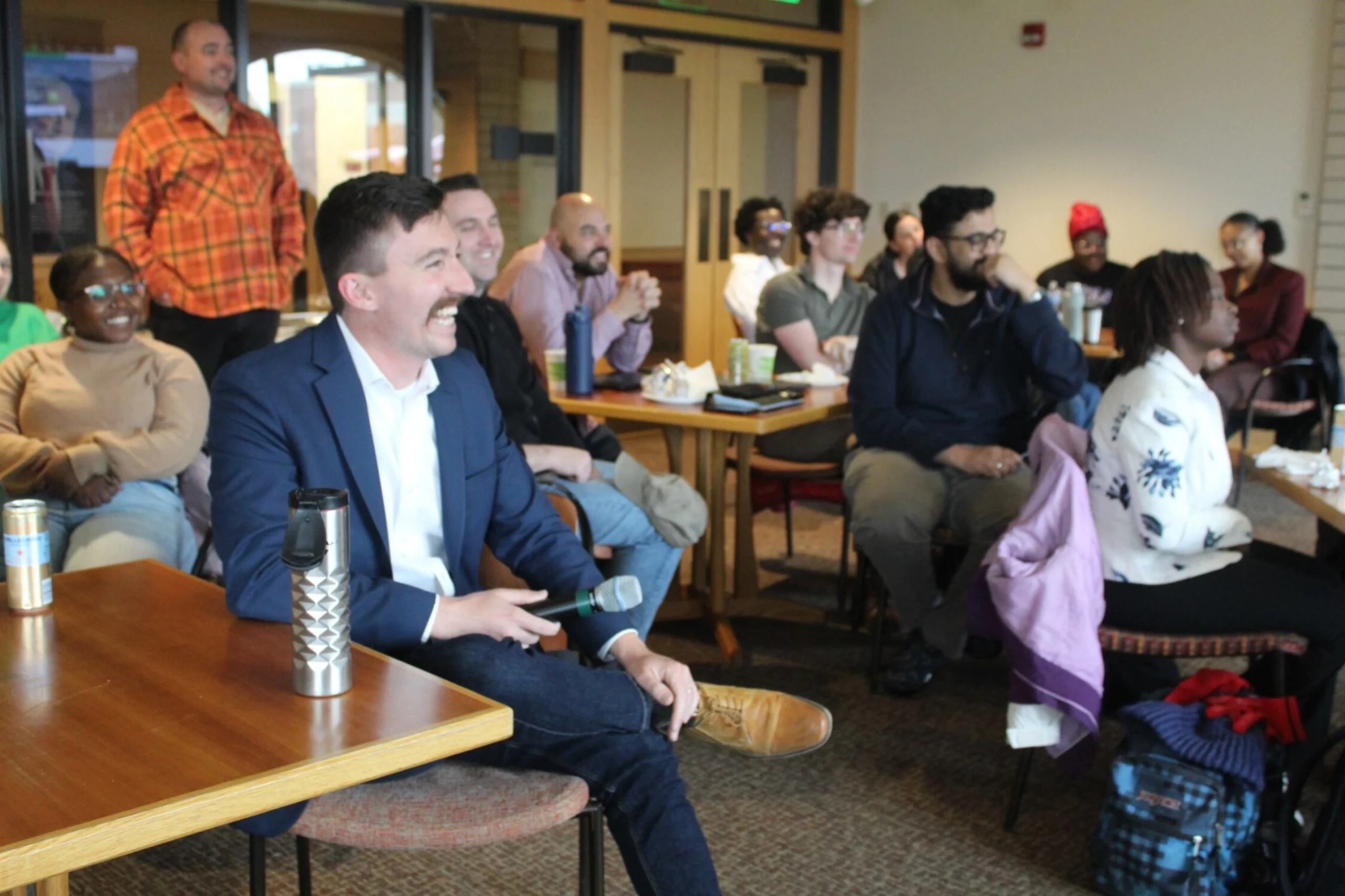The work of the Frederick S. Pardee Institute for International Futures is guided by its vision of building and disseminating increased knowledge for future wellbeing through the use of data and quantitative tools.
We are primarily interested in understanding the world as an interconnected set of systems. To that end, we engage in integrated assessment modeling and its application to questions of sustainable human, social, and environmental development. Another focus for our work is the creation of unique datasets and indices related to geopolitical analysis and international relations.
Our work is carried out by two subject-area teams, one focused on sustainable development analysis and one focused on geopolitical analysis. Their work is supported by a third team—the researchers, modelers, and data managers who maintain and enhance our International Futures (IFs) integrated assessment model.
Our goal is to foster a long-term dialogue among and across the scientific, policymaking, and modeling/data communities. Our partners include academics, governments, non-governmental organizations, international governmental organizations, think tanks, and private companies.
Learn about the Frederick S. Pardee Institute for International Futures research by reading more.





